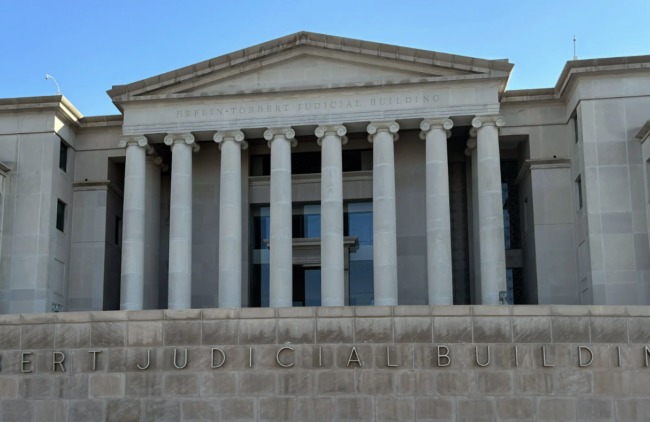In February, the Alabama Supreme Court ruled that frozen embryos are considered to be children. “Unborn children are ‘children’ … without exception based on developmental stage, physical location, or any other ancillary characteristics,” wrote Justice Jay Mitchell in the ruling. The ruling, “James LePage, et al. v. The Center for Reproductive Medicine and Mobile Infirmary Association,” came from a lawsuit filed by three couples in Alabama whose frozen embryos were destroyed in an in vitro fertilization (IVF) lab for an unknown reason. The courts ruled that their frozen embryos were the same as children and qualified as a wrongful death suit. One of the court justices cited as precedent Bible verses and an 1872 state law called the Wrongful Death of a Minor Act in support of the parents suing over the destruction of their embryos as the death of their children. “Even before birth, all human beings have the image of God, and their lives cannot be destroyed without effacing his glory,” wrote Chief Justice Tom Parker in his opinion.
“The LePage v Center for Reproductive Medicine and Mobile Infirmary” ruling plays into the hands of conservatives who are pushing their cause for fetal personhood, which is the idea that an embryo has the same rights as a living child. Up until now, in most jurisdictions, the two have been completely different in defining personhood. A living child is considered a person with consciousness and organs, while an embryo has been scientifically considered a group of cells. There is a very clear connection to the recent overturning of “Roe V. Wade,” which has been considered by many as a victory for the Pro-Life conservative movement in the US.
The very real concern in Alabama that came next was the legal responsibilities of the IVF centers in the state. In terms of function, IVF clinics house and keep safe frozen embryos for future use, in addition to other roles related to in vitro fertilization. The ruling equated frozen embryos to living children puts the IVF clinics at the center of this new controversy. The clinics are now in limbo because they are holding embryos that are considered lives. If one of these embryos is destroyed inadvertently, the clinic could be charged with murder.
To make sense of these legal concerns, one first needs to understand the basics of frozen embryos and IVF. In IVF, embryos are created when eggs removed from ovaries are fertilized with sperm outside the body inside of a lab. The embryos can then be frozen, or cryopreserved (storing life in below-freezing temperatures), and saved for later use when the embryos are then implanted into a woman to impregnate them. This use of frozen embryos is a common reproductive technique used in IVF clinics worldwide.
The embryos are delicate and can be damaged in the process of IVF. This is the main reason that IVF clinics have to be very careful when dealing with the embryos. For example, genetic testing can be carried out on the embryos to check for any genetic malformations; this process of testing can sometimes damage the embryos and be the same as destroying them accidentally. If the Alabama ruling gains momentum elsewhere, the legal issue is that accidentally damaging or destroying an embryo would be the same as the wrongful death of a child. As a result, IVF centers in the state have ceased operations out of fear of being sued. This puts all those people awaiting IVF in Alabama to have children and expand their families in limbo.
During the week of March 5th, in response to the enormous criticisms of the recent ruling, Alabama’s governor, Kay Ivery, signed legislation into law that protected physicians from any legal liability raised by the new court ruling. For now, physicians can practice IVF with no fear of being sued under the new frozen embryo ruling. “I am pleased to sign this important, short-term measure into law so that couples in Alabama hoping and praying to be parents can grow their families through IVF,” Ivey said.
However, the new law does not change the fetal personhood status of the frozen embryos. Most experts believe Pro-Life conservatives still see the Alabama ruling as a step towards potentially further reducing abortion rights in the US. KC Cohen, our Director of Health and Wellness at Filedston Middle and Upper Schools brings up a very interesting point when she responds, “Though many of us had believed we were past this hurdle a long while ago, it seems that once ‘Roe v. Wade’ was overturned in June 2022, the gates protecting women’s rights around abortion and government control and restriction over it and related issues – reopened in a very real and very scary way. The fight continues over control of if, when, and how people have children – and even what a child is.” These are words that force us Americans to consider where this ruling will lead us in the future. In theory, if an embryo in the human body, even before it becomes a fetus at approximately 10 weeks of pregnancy, can be considered a child, then termination at the very early stages of pregnancy would be considered wrongful death. In the end, even though clinics may be able to open back up in Alabama, the damage has already been done with this dangerous new court ruling. The further impact on the American people in the long term remains to be seen.






